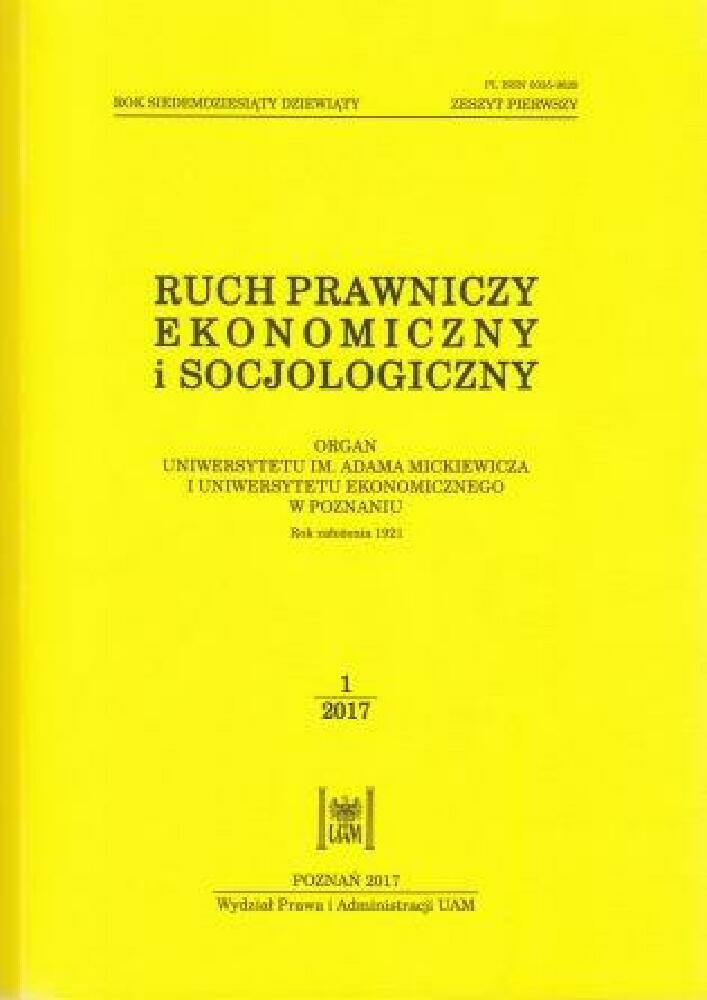Abstract
The paper examines the first year of the Law and Justice Party’s (Prawo i Sprawiedliwość) government which has implemented many changes in the system of justice in Poland by virtue of ordinary acts of parliament. Some of the measures taken by the government were aimed at increasing the competences of the executive powers over the judiciary by a reference to a preferential interpretation of the existing regulations, whereas others focused on the implementation of changes in the legislative. While there are no doubts that the system of justice needs modifications to increase the efficiency of courts, most changes currently implemented or planned to beimplemented raise serious concerns among the judges. In 2016, the ruling party aimed first at subordinating or paralysing the work of the Constitutional Tribunal; later it went on to implement changes in the Prosecutor’s Office with a view of making it politically dependent, increasing at the same time the competences of the executive, by, among other things, new legislative solutions. In January 2017 a draft of an act of parliament to amend the National Chamber of the Judiciary was announced. If implemented it will bring about fundamental and unconstitutional changes to the political system of the Republic of Poland and will politicise the Council, depriving self-governing judiciary bodies of the actual say in the process of identifying candidates for judicial appointments.
References
Łączkowski, W. (2016), Uwagi do aktualnych wydarzeń wokół polskiego Trybunału Konstytucyjnego, Ruch Prawniczy, Ekonomiczny i Socjologiczny 78(1): 51–56.
Safjan, M. (2016), Polityka a Trybunał Konstytucyjny. Konstytucja – ostatni środek obrony przed polityką, Ruch Prawniczy, Ekonomiczny i Socjologiczny 78(1): 35–42.
Stępień, J. (2016), Rewolucja – świadoma czy nieświadoma, Ruch Prawniczy, Ekonomiczny i Socjologiczny 78(1): 19–33.
Suchocka, H. (2016), Stanowisko Komisji Weneckiej dotyczące pozycji ustrojowej sądownictwa konstytucyjnego w demokratycznym państwie prawa, Ruch Prawniczy, Ekonomiczny i Socjologiczny78(1): 5–18.
Zawistowski, D. (2016), Niezależność sądów i niezawisłość sędziów z perspektywy prawa Unii Europejskiej, Ruch Prawniczy, Ekonomiczny i Socjologiczny 78(2):7–13 .
Zoll, A. (2016), Sposób wyboru sędziów Trybunału Konstytucyjnego, Ruch Prawniczy, Ekonomiczny i Socjologiczny 78(1): 43–50.
License
Copyright (c) 2017 WPiA UAM

This work is licensed under a Creative Commons Attribution-NonCommercial-NoDerivatives 4.0 International License.




